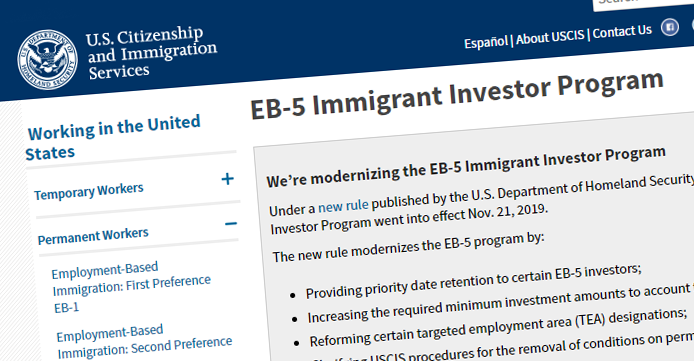
We often report on EB-5 situations where one group of people with Chinese names is accused of exploiting others with similar names. Usually it is U.S.-based middlemen charged with cheating people in China who want to buy their way into this country through the immigrant investor program, with the money being mishandled if not stolen. (See here and here.)
Today's story has Chinese people charged with exploiting others with Chinese names. It involves a huge EB-5 project to build the tallest structure in Jersey City, and in all of New Jersey, but there are two differences from the norm:
- The usually reliable Law360 news service missed the fact that this was another massive EB-5 project; and
- The abuse charged was that the company "wielded the threat of deportation and used sexual harassment to control its young Chinese employees."
So the firm was both using one part of the immigration law to secure ultra-low-cost capital from one group of Chinese aliens, and was threatening to use another part of the law to exploit a different group of Chinese nonimmigrant workers on the company staff. A genuine two-fer. No loss of investors' money is mentioned in the article.
The Law360 article, behind a partial paywall, states:
[F]ormer employee Mengxun Han alleged that China Overseas America Inc. and COA 99 Hudson LLC delayed the filing of workers' visa applications, misinformed them about the status of the applications and manipulated job titles when submitting visa paperwork.
Company higher-ups also made inappropriate comments to Han, delayed her advancement while promoting her male peers, and forced her to work on a job site where COVID-19 precautions weren't being followed, she said.
...
The company's top brass also fomented a "male-dominated" culture of sexual harassment, according to Han.
In examples listed in the complaint, Han said one male executive made comments about her makeup, complexion and breast size, while another played romantic music and repeatedly touched her hand while they were working alone in a room.
The firm is the U.S. wing of a Hong Kong-based company.
I do not have the numbers on the cost of the capital in this specific case, but time after time in these situations the investors are in mezzanine financing (no collateral) and get about 1 percent a year for their money; this saves the middlemen about 9 percent, but offers the investors a family-sized set of green cards. This is par for the course.
Han, apparently hired as a subsidized worker under the Optional Practical Training program after securing an American degree, was later moved into H-1B status. She no longer works for the company and her current migration status was not mentioned in the article.
The project, 99 Hudson, in Jersey City, is not to be confused with an even bigger EB-5 project, Hudson Yards, on the other side of the river in Manhattan. It is also different from, but similar to, a nearby EB-5 project run by the Kushner family at One Journal Square, also in Jersey City.
Han's suit, filed in the Hudson County Court, relates to two N.J. statutes, the Anti-Discrimination Law (which is older than the comparable federal statute) and the state's Conscientious Employee Protection Act; she seeks compensatory and punitive damages, as well as legal fees.
The 99 Hudson website shows that there are 96 EB-5 investors, who put $48 million toward the project.
